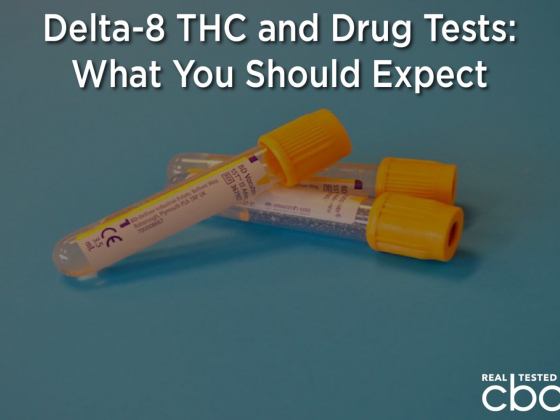

As interest in the world of cannabinoids continues to grow, new variants like delta-8 THC are gaining popularity. delta-8 THC, a less potent cousin of the more famous delta-9 THC, has become a sought-after compound due to its unique properties. Yet, one question keeps arising for those curious about or regularly using delta-8 THC: "Will it show up on a drug test?"
The short and simple answer is yes, delta-8 THC can show up on a drug test. However, the specifics aren't quite as straightforward. Let’s take a closer look.
First, it's important to understand how drug tests work. Standard drug tests, particularly those designed to detect cannabis use, typically look for a compound called THC-COOH. This is a metabolite of THC, meaning it's a substance that the body produces when it processes any form of THC, whether it's delta-8 or delta-9.
This means that if you've consumed delta-8 THC, it can indeed trigger a positive result on a standard drug test, even though the effects of delta-8 THC are generally milder and quite different compared to delta-9 THC. Drug tests are not usually able to differentiate between these two forms of THC, so any use of delta-8 THC products may put you at risk of testing positive.
The question then is, how long after using a delta-8 THC product could you potentially test positive? Well, this depends on a multitude of factors, including how much you used, how often you use it, your body composition, metabolism, and even the type of drug test administered. Just like with delta-9 THC, delta-8 can linger in your system for several days or even weeks. So, even occasional use could potentially lead to a positive test result.
At this point, you might be thinking, "So what can I do if I want to enjoy delta-8 THC but have to undergo drug testing?" The reality is, if you are likely to be subjected to drug tests, whether for work or other reasons, the safest course of action would be to avoid delta-8 THC products altogether. If you decide to partake, it's essential to be aware of the potential ramifications. (Sticking to CBD products that have been tested and proven to have zero THC of any kind might be your best bet).
One crucial aspect to keep in mind is the importance of knowing what's in your delta-8 THC products. Third-party lab testing is key to ensure the quality and integrity of the products you use. It verifies not just the concentration of delta-8 THC but also the presence of any other cannabinoids, including delta-9 THC, which is often found in trace amounts in hemp-derived products. A higher concentration of delta-9 THC could significantly influence a drug test's results. Always look for products that provide comprehensive, third-party lab test results.
It's important to stay informed, especially when it comes to understanding the potential impact of different cannabinoids on drug testing. While delta-8 THC might be less potent and offer different effects compared to its cousin delta-9 THC, it can indeed show up on a standard drug test.
If you are in a situation where passing a drug test is crucial, it may be best to avoid delta-8 THC. If you are looking to find reliable cannabinoid-based products backed by third-party lab test results that you can trust, turn to Real Tested CBD.
Advertising disclosure: We may receive compensation for some of the links in our stories. Thank you for supporting LA Weekly and our advertisers.